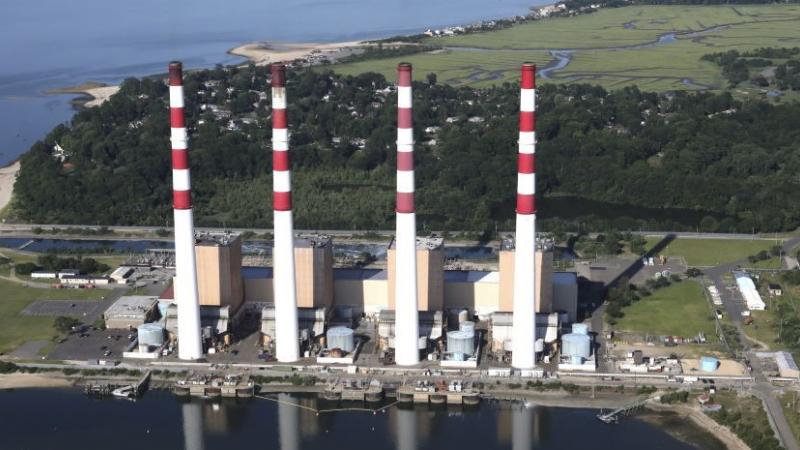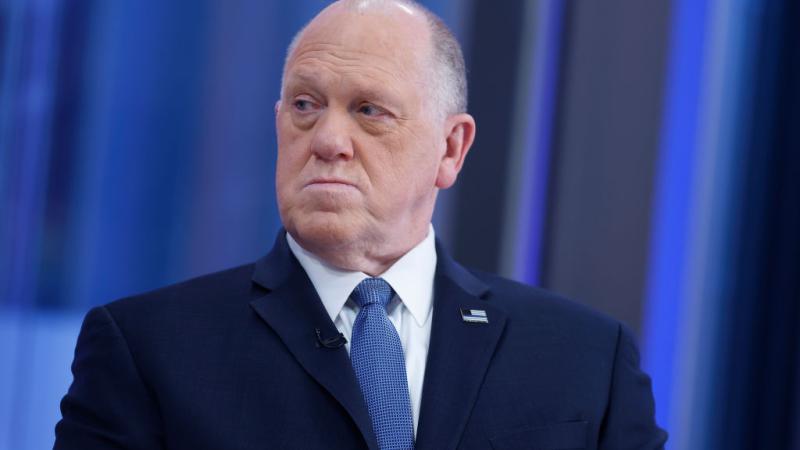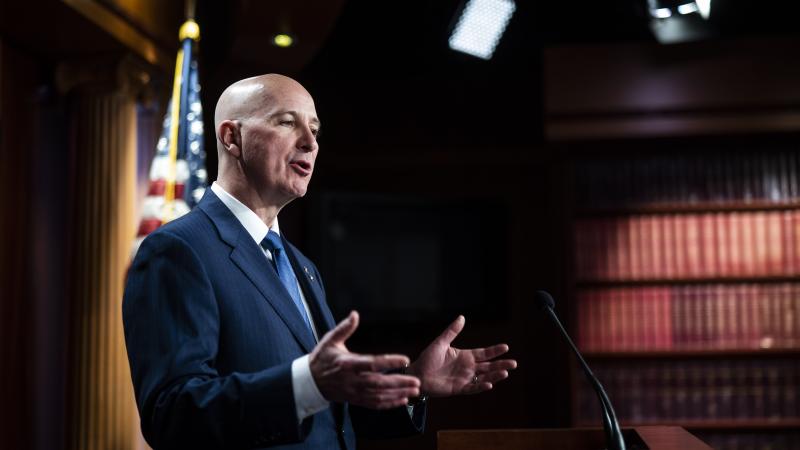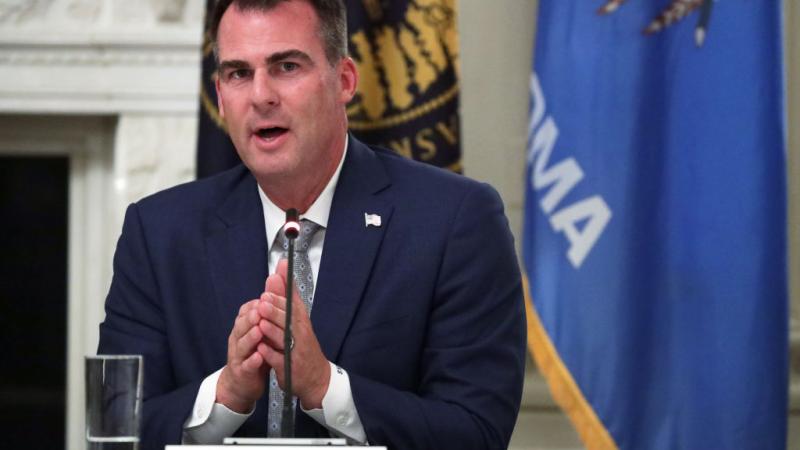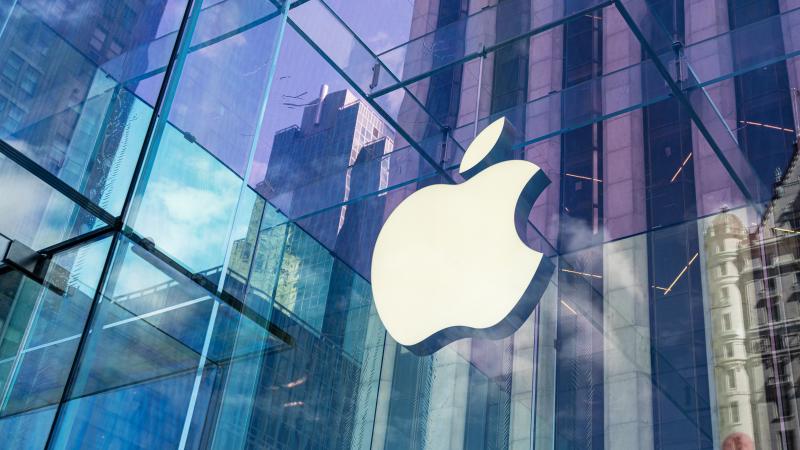As green energy funds drop in value, investors are fleeing: Will it be the end of ESG?
The iShares Global Clean Energy exchange traded fund is down 36.59% this year as of Wednesday, and the S&P Global Clean Energy Index is down over 30%. That’s compared to the S&P 500 Index, which is up 23.4% on the year. Does going "woke" mean going broke?
In 2018, Bank of the West issued policy statements vowing to limit the business it would do with fossil fuel companies.
The bank’s decision was made entirely on an ideological opposition to fossil fuels and not out of any concern that the investments weren’t paying off, saying that they were withdrawing support for companies and business activities that are "detrimental to our environment and our health."
In those days, few had ever heard of environment, social and governance (ESG), a form of corporate responsibility that rates funds according to certain progressive-friendly markers. Among them is a commitment to fighting climate change by minimizing or eliminating support for fossil fuels.
At the time, Wyoming Gov. Mark Gordon, was the state’s treasurer. As treasurer of an energy state, Gordon wasn’t too happy with San Francisco-based Bank of the West’s announcement, and he threatened to stop doing business with them.
“It was kind of interesting to see that happen. Wyoming was the first state to pull money from a bank,” Dr. Brent Bennett, policy director for Life:Powered, an energy education initiative of the Texas Public Policy Foundation, told Just The News.
Rise and decline
As the influence of ESG continued to grow after 2018, state legislatures, especially in red states, grew concerned about tax dollars funding progressive causes. Today, 19 states have at least one anti-ESG law on the books, according to S&P Global Market Intelligence.
While more laws regulate the use of ESG in state business decisions, the poor performance of ESG funds has also chipped away on the movement’s influence. Higher interest rates and inflation blasted so-called clean energy stocks.
Citing Morningstar data, The Wall Street Journal reported that beginning in the second quarter of 2022, investments into "sustainable" funds went negative. The following quarter was the first time that more sustainable funds removed ESG criteria from their investment practices than were added. Morningstar itself defines sustainable funds as "funds that use environmental, social, and corporate governance (ESG) criteria to evaluate investments or assess their societal impact. They may pursue a sustainability-related theme or explicitly aim to create measurable social impact."
The iShares Global Clean Energy exchange traded fund (ETF) is down 36.59% this year as of Wednesday, and the S&P Global Clean Energy Index is down more than 30%. That’s compared to the S&P 500 Index, which rose more than 23% YTD as of December 12.
Bloomberg reported that Ray Dalio, the billionaire founder of Bridgewater Associates, told delegates at the COP28 climate summit in Dubai earlier this month that private capital will only finance a climate agenda so long as it makes money. “You have to make it profitable,” Dalio said.
It’s a tough year all the way around for energy companies, as high interest rates and inflation come down hard on everyone, including the oil and gas industry.
Strive Asset Management was founded by now presidential candidate Vivek Ramaswamy to shift the priority toward the financial interest of its clients — what the company calls shareholder capitalism — and away from stakeholder capitalism that incorporates considerations like ESG concerns. Strive has 11 exchange traded funds (ETF's) traded on the U.S. markets, with total assets under management of $1.03 billion. Strive’s passively managed energy fund DRLL is down 4.57% YTD as of Wednesday.
Shareholder capitalism vs. Stakeholder capitalism
Over the past few decades, Strive explains in a white paper, American shareholder capitalism has outperformed European-styled stakeholder capitalism by 3.25%. The company explains the contrast to stakeholder capitalism, "which holds that corporations should prioritize not just shareholders, but anyone affected by their actions."
Strive CEO Matt Cole, who took the position after co-founder Ramaswamy resigned to pursue his presidential campaign, explained on a podcast in July that when he was a portfolio manager with the California Public Employees' Retirement System (CALPERS) he saw stakeholder capitalism incorporated into the system’s investment practices.
“I became very interested in this subject, and it eventually led me to Strive. But I saw that as the biggest fiduciary breach has ever happened in America,” Cole said. Shareholder capitalism has an advantage of a 3.25% return compared to stakeholder capitalism and that can have an enormous impact, he said.
If stakeholder capitalism were actually implemented in its entirety "we think that that would effectively bankrupt every public pension in America,” Cole added. Cole told Just the News that profits in the energy sector over the last couple years "support the case for shareholder primacy.”
“We have seen the profitability of American companies like Exxon and Chevron outperform its European competitors like Shell and BP, because the European companies have sacrificed more production to meet net zero emissions targets. These same European companies are now scaling back on their climate commitments and refocusing on fossil fuel production,” Cole said.
Strive's approach, Cole explained, doesn’t mean it would avoid investments in renewable energy. They consider any opportunity, Cole explained, but for any active portfolio management, they’re focused on how well those investments maximize risk-adjusted returns for its clients.
“The ‘greenium’ in most green investments has existed for years, and while it's come down substantially, we still see several pools of capital that we believe aren't looking at investments in green assets from a purely economic lens,” Cole explained. Cole said it’s part of stakeholder capitalism to view green investments through that lens, rather than a strict value-maximization portfolio maximization perspective. “For that reason, we view potential investments in green investments with an extremely critical eye but do not rule them out,” he said.
Myth busted
While green energy stocks plummet this year, Bennett of Life:Powered said it’s not necessarily time to measure the coffin for stakeholder capitalism.
People are, he said, realizing that ESG investing isn’t a way to gain more performance over the broader market. “I think that myth is slowly being being busted,” Bennett said.
ESG is losing favor, he said, as people come to realize that fossil fuels are going to be part of the global energy mix for far longer than climate activists would like. The other factor working against ESG funds is that they generally charge higher fees, which erodes returns over time, and that erosion is not insignificant. In the competitive market environment in which finance companies operate, he said, fees on index funds are declining over time.
“That’s just a function of innovation, and also the market, which is good for us investors,” Bennett said.
However, for smaller investment firms that lack the scale of a firm like Vanguard, who has more than $7 trillion under management, the shrinking fees are squeezing them. “So they have to find other funds to sell other ways to make money. ESG is a way to do that,” he explained.
With ESG performance slipping compared to the broader market, however, investors are getting wise to the impact of higher fees.
Investor preferences are nothing new, and there’s no reason to think that another fad will not follow on the heels of ESG as it declines in popularity. Before ESG, Bennett said, there was "corporate social responsibility", and before that there was "socially responsible investing." "Investor preferences are always, always a part of the market. So, it's never going to go away,” he said.
Earlier this year, Blackrock’s head Larry Fink, said at a conference in Colorado that its iShares firm would stop using the term “ESG.” However, Reuters reported, that was only because it had become unpopular, but the company, Fink said, wouldn’t be changing its stance.
The Facts Inside Our Reporter's Notebook
Links
- issued policy statements
- he threatened to stop doing business
- Life:Powered
- according to S&P Global Market Intelligence
- the Wall Street Journal reported
- Morningstar itself defines sustainable funds
- iShares Global Clean Energy
- S&P Global Clean Energy Index
- S&P 500 Index
- Bloomberg reported
- Strive Asset Management
- now presidential candidate Vivek Ramaswamy
- DRLL is down 6.47%
- the company explains in a white paper
- California Public Employees' Retirement System
- a firm like Vanguard
- Reuters reported



